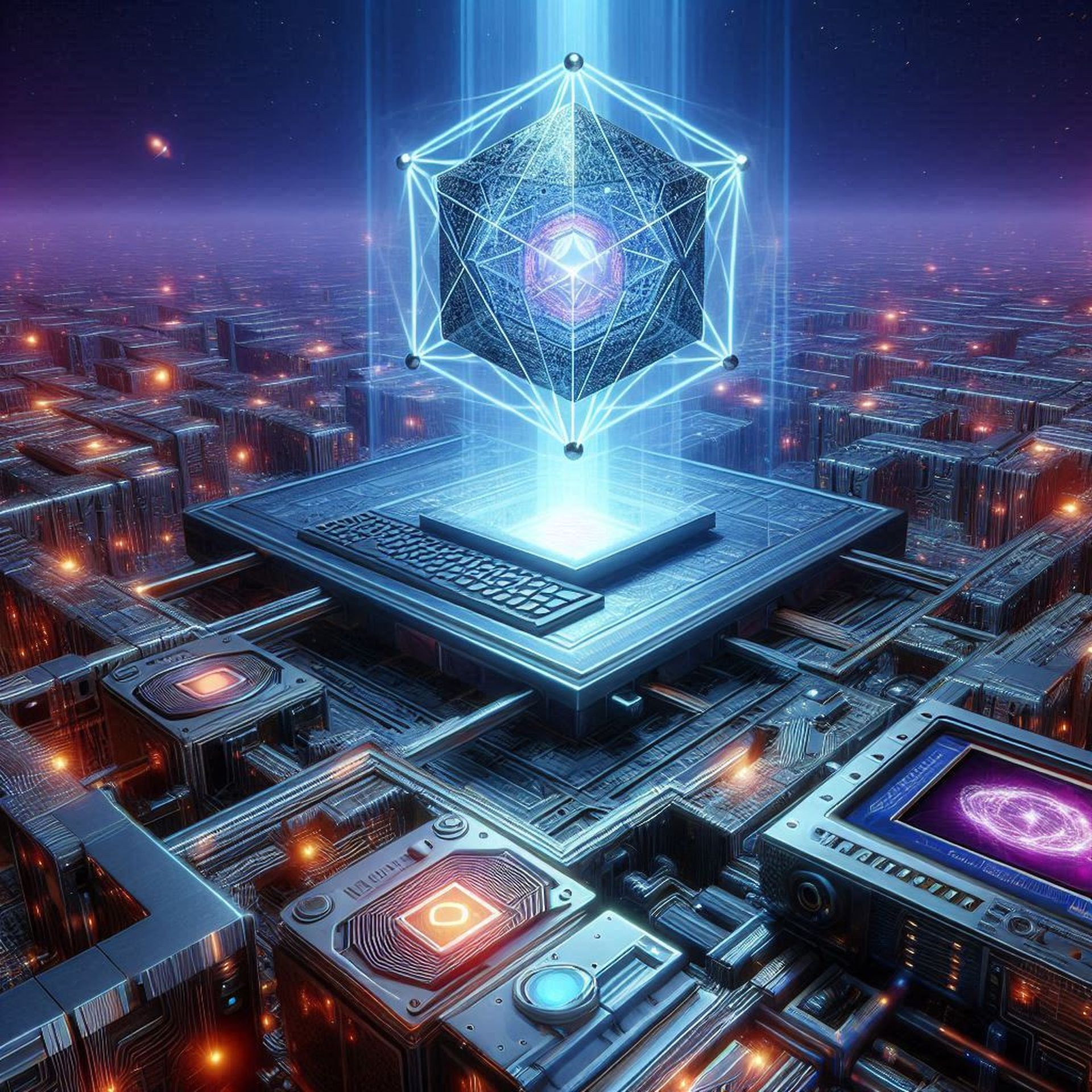and the distribution of digital products.
How quantum computing could transform blockchain technology

In the past couple of years, we’ve all heard a bunch of talk about quantum computing, but what does it actually mean? We all know that a quantum computer is powerful, but it seems like the world doesn’t know much about the progress we’ve made so far and the impact that it will have on the world.
Quantum computing is similar to blockchain technology at its beginnings. At first, nobody really knew what was going on with Blockchain technology and its capabilities, but it turned out that it has the potential to revolutionize the global financial industry.
One of the main selling points of Blockchain technology is the unbackable aspect of the network and the entire infrastructure that supports cryptocurrencies. But what if the world now has a quantum computer?
Will the quantum computer hack a Blockchain network in seconds, and can it disrupt the world of cryptocurrencies?
What exactly is quantum computing?Before we can dive deeper into the impact of this technology, we first need to accurately understand what is quantum computing.
We are talking about a computer monster which is much more powerful than the computing power we have nowadays. This computer is capable of solving math problems that would make your current laptop explode from temperature.
But if you want more scientific, quantum computing leverages the mind-bending principles of quantum mechanics just so it can perform calculations that traditional computers cannot handle in a reasonable timeframe.
 Traditional computers use bits (those tiny 0s and 1s), whereas quantum computers use qubits. But what does this mean, and what’s so special about qubits?
Traditional computers use bits (those tiny 0s and 1s), whereas quantum computers use qubits. But what does this mean, and what’s so special about qubits?
Well, the great thing is that they can exist in multiple states at once, thanks to a phenomenon called superposition. I know it sounds like we are in an Avengers movie and you are talking to Tony Stark, but if you don’t want to get all scientific, think about a quantum computer as a Super Computer, that is significantly more powerful than the technology we have now.
But what does superposition even mean? Try to imagine a qubit as a spinning coin, where it is both heads and tails simultaneously until you take a peek. That’s essentially how data processing works with quantum computing.
On top of that, qubits can be linked in such a way that the state of one qubit instantly affects another, no matter how far apart they are. Spooky action at a distance, anyone?
What’s the end result? Well, quantum computers are capable of solving problems in seconds due to high data processing.
The blockchain basicsNow we move to a technology that we are much more familiar with. We are talking about blockchain, which has been around for quite some time. If you’ve been living under a rock and still don’t know what is blockchain technology, you can think of it as a digital ledger that is open to everyone and as advertised it is tamper-proof. It is like a digital record book that everyone can write but nobody can erase. That’s blockchain in a nutshell. It is the main thing that powers cryptocurrencies like Bitcoin and Ethereum, and ensures their transparency and security without needing a middleman like a bank.
Blockchain is distributed across multiple nodes (computers), which means there’s no single point of failure. If one node goes down, the rest keep the system running smoothly. Once a transaction is added to the blockchain, it’s there for good. You can’t alter or delete past entries, which makes it super secure.
These are self-executing contracts with the terms written into code, allowing transactions to automatically execute when certain conditions are met.
Blockchain’s main allure lies in its ability to provide a trustless environment, relying on cryptographic algorithms to maintain security. So, what’s the deal with quantum computing and cryptocurrency?
Quantum computing meets blockchain: A match made in cyberspace?So, what happens when quantum computing waltzes into the blockchain party? Well, things could get a little… interesting.
The good: Quantum computing supercharges blockchainQuantum computing could significantly enhance blockchain technology in a few ways:
- Faster transactions: Quantum computers could potentially speed up the verification of blockchain transactions. Faster transactions mean less time waiting for that coffee purchase to go through while the barista gives you a side-eye.
- Improved security: Quantum computing might lead to new cryptographic techniques that are more secure than current methods. Imagine quantum-resistant blockchains that can fend off cyberattacks with the grace of a kung-fu master.

- Enhanced scalability: Current blockchain networks struggle with scaling as the number of transactions grows. Quantum computing could help solve this by processing more transactions simultaneously, reducing congestion and lowering fees.
However, it’s not all rainbows and sunshine. Quantum computing poses some significant threats to blockchain technology, particularly in the realm of security:
- Cryptographic vulnerabilities: The cryptographic algorithms that secure most blockchains today are not quantum-proof. A sufficiently powerful quantum computer could potentially break these codes, allowing hackers to reverse-engineer private keys from public keys and gain unauthorized access to crypto wallets.
- Cryptocurrency heists: Sophisticated attackers could use quantum computing to exploit vulnerabilities in blockchain networks, making off with cryptocurrencies faster than you can say “blockchain”.
 Preparing for the quantum future
Preparing for the quantum future
The quantum threat is real, and the blockchain community isn’t taking it lightly. Researchers and developers are hard at work developing quantum-resistant cryptographic algorithms to protect blockchain networks from future quantum attacks. Here’s a look at some strategies:
- Post-quantum cryptography: New cryptographic techniques, like lattice-based cryptography, are being developed to withstand quantum attacks. These methods are believed to be secure against both classical and quantum computers.
- Hybrid cryptographic schemes: Combining traditional and quantum-resistant cryptography, these hybrid schemes offer a transition strategy for blockchain networks, allowing them to gradually adopt quantum-resistant algorithms without disrupting existing systems.
- Quantum-resistant blockchains: Some projects, like IOTA and Quantum Resistant Ledger (QRL), are designed with quantum resistance from the ground up, aiming to provide secure solutions for a post-quantum world.
All images are generated by Eray Eliaçık/Bing
- Home
- About Us
- Write For Us / Submit Content
- Advertising And Affiliates
- Feeds And Syndication
- Contact Us
- Login
- Privacy
All Rights Reserved. Copyright , Central Coast Communications, Inc.